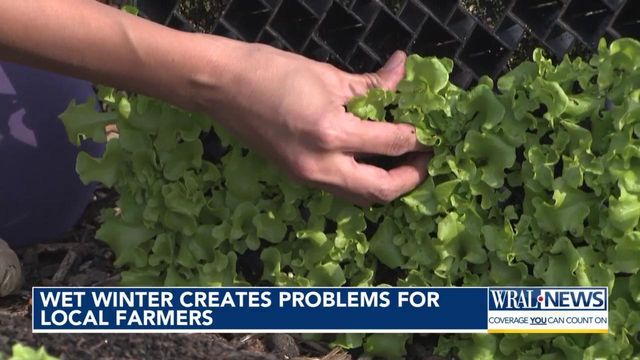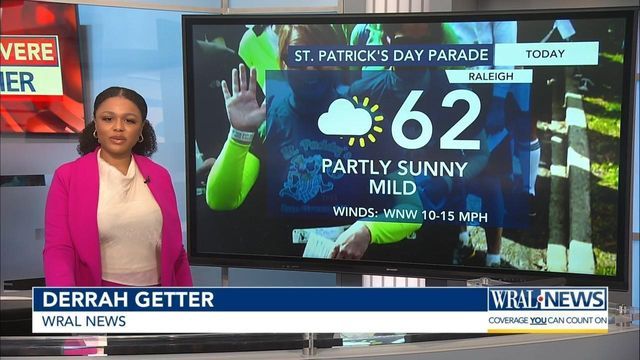Warmer weather stunts local food supply
The El Niño climate pattern has caused above normal temperatures throughout the 2023-2024 winter season.
According to the National Weather Service, no snow was reported at Raleigh-Durham International Airport this winter. This is the first time that’s happened since records began in 1887.
Local food banks and charities rely on local farmers for fresh produce but the warmer weather has made it difficult for farms like Raleigh City Farm to meet those demands.
“I think about food security very, very often, maybe more than most people because of my line of work and because we are directly impacted,” said Raleigh City Farm Manager Maria Williford.
Some crops aren’t even sustainable in a warmer climate.
“Say we would plant out a row of 50 cabbages expecting a cabbage to come out 6-10 pounds and they weren’t growing at all because cabbages like cool weather,” said Raleigh City Farm Assistant Manager Colleen Yeager.
Goodness Grove owners Rhylon Durham and Dain Kim have only been in the farming business for two years but they noticed a big difference from their first year to their second.
“That’s the thing with these weather patterns, warmer and then extreme cold for a short time and that’s the kind of thing that can just wipe out everything,“ said Rhylon.
Warmer temperatures force farmers to either plant their crops earlier or wait for cooler weather. Durham grew anxious about falling behind larger farms so he decided to take a chance and plant his crops sooner than he normally would.
“I do feel anxious but I know that I’m a new farmer, I’m a beginning farmer and so I’m not trying to be so hard on myself about that,” Whether new to the farming business or seasoned, it’s been hard for local farmers to keep up with the changing climate.
“It’s [climate change] not a good thing but we do have to learn to adjust to pivot with it,” Yeager said.
The El Niño climate is now transitioning to a La Niña climate pattern which raises concerns about a more active hurricane season.
Derrah Getter is a meteorology CBC-UNC Diversity Fellow currently attending the University of Florida.











